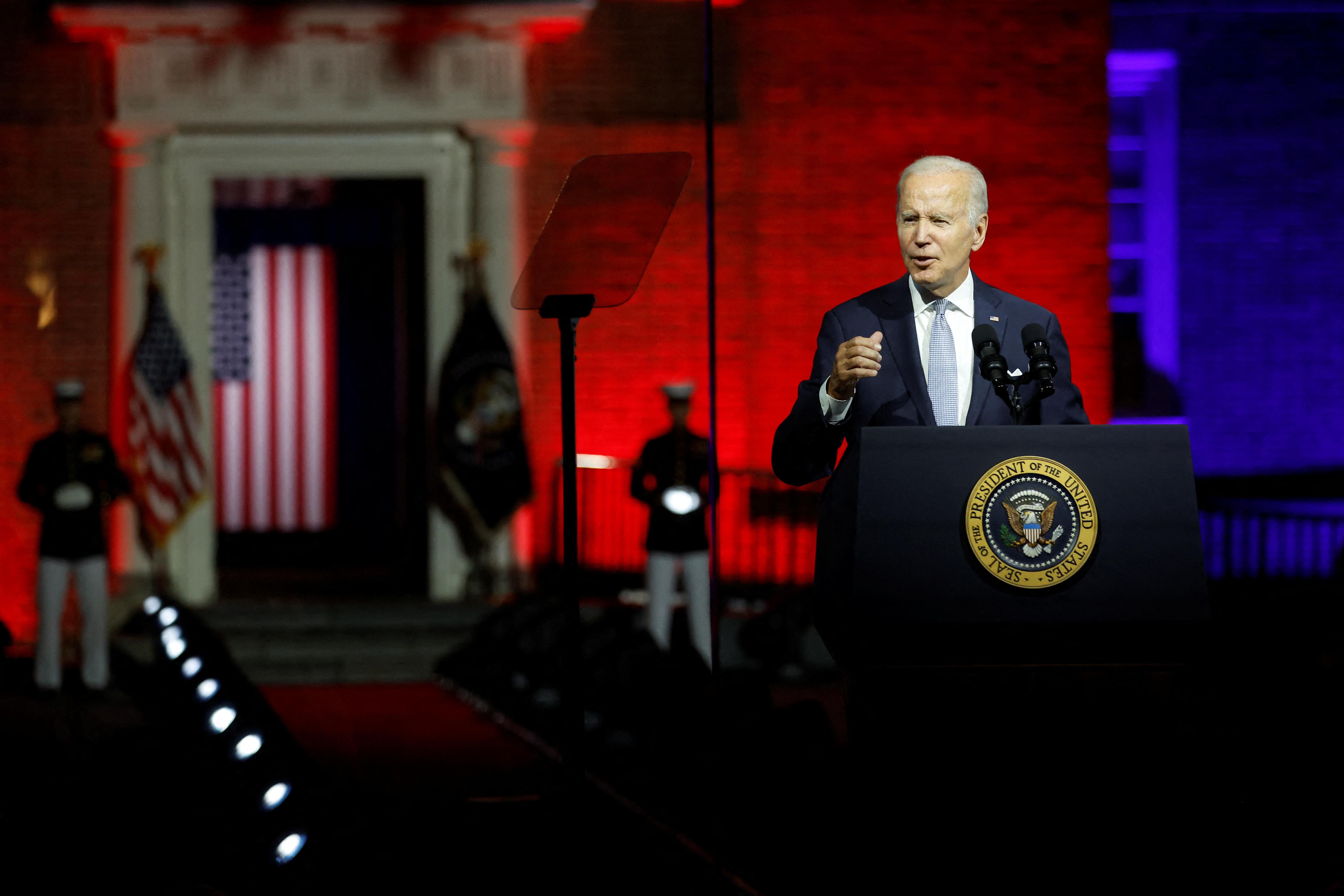President Joe Biden delivered Thursday night a primetime address in Philadelphia — the birthplace of the US republic — with a clear message to the American people: Democracy is under threat.
Throughout the address, classically dubbed the “Speech on the Continued Battle for the Soul of the Nation,” Biden called out his predecessor Donald Trump for degrading both democracy and decency, and took aim at “MAGA Republicans,” who he said “do not respect the Constitution.” In noting that “MAGA Republicans have made their choice,” Biden was clearly not trying to reach across the aisle to the 47% of Americans who voted for Trump in 2020.
Rather, eight weeks out from midterm elections (when Democrats are expected to lose control of the House of Representatives, and perhaps also the Senate) the president appealed to his disjointed coalition — made up of centrists, independents, moderate Democrats, and progressives — to turn out and vote.
Biden was at his most passionate in deriding the “divisive culture wars.” But platitudes like calling on a “coalition of goodwill to defend democracy” might not appeal to independent voters in Michigan or Georgia. Biden told Americans that a vote for the GOP in November is a vote for Trump and against democracy. Will it be enough?
